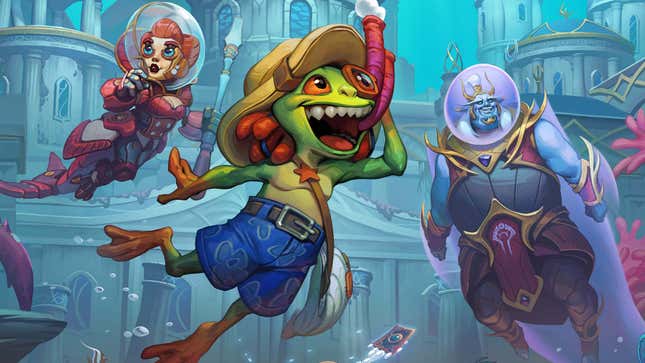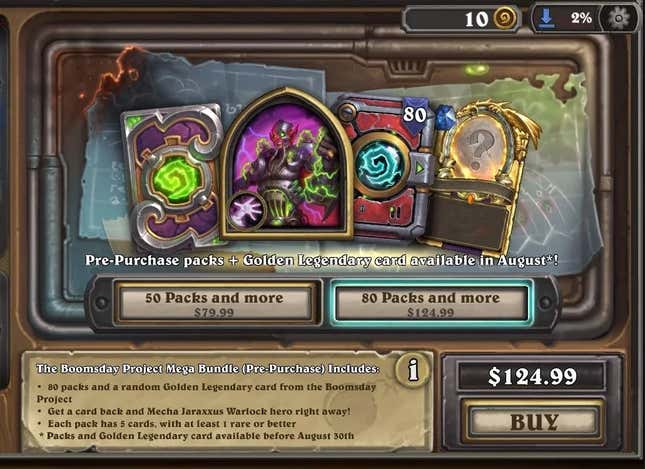
Blizzard is facing a proposed class-action lawsuit over card packs sold to minors in Hearthstone, its popular World of Warcraft-themed trading card game. A parent in Arizona claims his child purchased hundreds of dollars worth of the cards without realizing how rare it is to get good cards out of the packs. And the purchases were not refundable.
As reported by Polygon, earlier this month Nathan Harris from Arizona filed the proposed class-action lawsuit in California State Superior Court in Orange County. The lawsuit is on behalf of his child and claims that Blizzard is using “unlawful, deceptive, and misleading” tactics in Hearthstone. Specifically, Harris and his lawyers claim in court docs that Blizzard allows kids and teens to “pay real-world currency to gamble on winning in-game items” and won’t provide refunds even when the purchases are made by a minor. Harris’s legal team argues that children “comprise a large segment” of Blizzard’s audience.
In the court filing, Harris and his lawyers slam Blizzard’s card packs, explaining that the odds of getting a powerful card are very low and that Blizzard doesn’t actually spell this out enough, leading to many players spending lots of money trying to get a good card. In the docs, the lawyers refer to Hearthstone’s card packs as “mostly worthless,” alleging they often only provide users with “valueless Cards that players already have or do not want.” They claim that if users knew the real odds of receiving legendary cards, they would be far less likely to buy any packs.
Harris has a personal gripe with Blizzard, too. As revealed in the court filings from earlier this month, this lawsuit was filed after his child spent over $300 on Hearthstone between 2019 and 2021. According to Harris, these purchases were made without his permission using his credit and debit cards. The lawsuit notes that the child “almost never received any valuable cards” from all the packs she purchased while playing the free-to-play card game. And that she regrets spending that much money on the packs and wishes she could get her money back.

Harris and his lawyers argue that under California Family Code, minors should be able to “disaffirm contracts”; in other words, be able to break them, get out of them, or get their money back. Harris and his legal team are asking the court to award the lawsuit class-action status so more parents and minors could potentially be compensated as well.
In response to this proposed class-action lawsuit, Blizzard has requested the case be moved from the California State Superior Court to the United States District Court in California’s central district, which Blizzard’s legal team claims has jurisdiction. Blizzard argues that damages for this case could exceed $5 million, which would allow it to move the case to the federal district. Blizzard also disputes all of the claims made in the proposed class-action suit.
Kotaku reached out to Blizzard for comment about the lawsuit.
Of course, this is far from the only legal issue Blizzard currently finds itself in. The company, as part of the larger Activision Blizzard publisher, is facing multiple lawsuits after word emerged last year that the company was under investigation over toxic, sexist, and racist work conditions, as well as sexual harassment and other appalling behavior.
Since that became public, the company has seen high-level departures, experienced walkouts, and faced other fallout as it continues to fight in court across multiple cases.